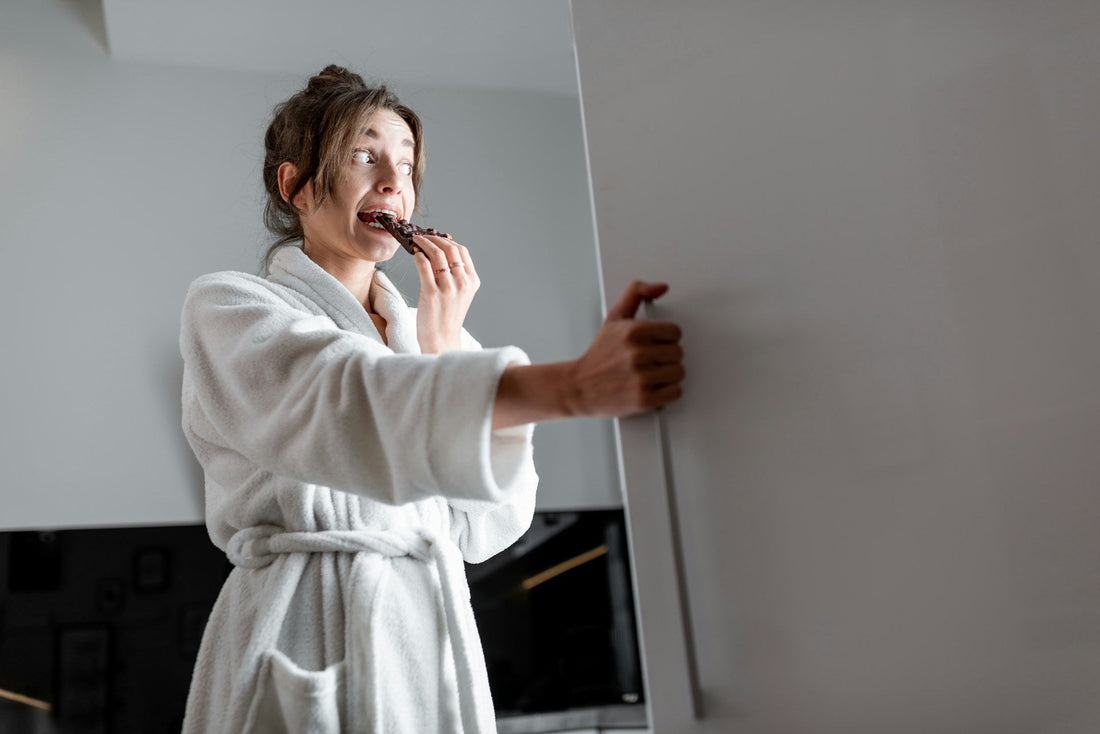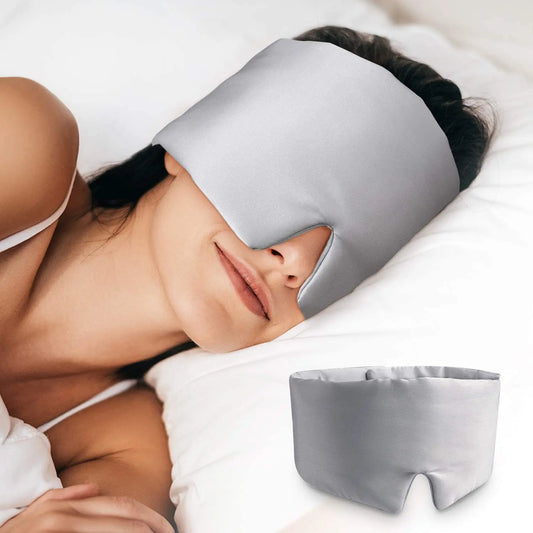
Eating Before Bed: Best and Worst Foods for Better Sleep
Share
Late-night snacking is a habit many of us share. For some, it’s a comforting ritual before winding down, while for others it’s a way to quiet hunger pangs that strike just as the lights go out. But does eating before bed help you sleep—or make it harder to rest? The answer depends on what you eat, how much, and when. Food can be either a gentle ally in drifting off or a disruptive force that leaves you tossing and turning.
In this article, we’ll explore the benefits and drawbacks of eating before bed, highlight the best and worst foods to consume at night, discuss how timing plays a role, and look at supplements and nutrients that may naturally support better sleep.
The Benefits and Pitfalls of Eating Before Bed
Eating before bed is not automatically harmful. In fact, for some people, it can actually improve sleep quality. A small, balanced snack can prevent the discomfort of hunger that might otherwise wake you up during the night. Light carbohydrates, for example, help maintain stable blood sugar levels and reduce restlessness, while a bit of protein can support muscle repair and growth overnight—something athletes and those who exercise regularly may find especially beneficial.
However, the pitfalls are just as real. Heavy meals eaten too close to bedtime can cause indigestion or acid reflux, making it difficult to fall or stay asleep. Overeating at night is also linked to fragmented rest, where sleep is frequently interrupted and restorative deep sleep is reduced. Beyond sleep quality, late-night indulgence in calorie-dense foods may also interfere with weight management. The key is not to avoid eating before bed altogether, but to choose the right types of foods and the right portions.
The Best Foods to Eat Before Bed
Some foods are uniquely suited to promoting sleep. Bananas, for instance, are rich in potassium and magnesium, both of which help relax muscles and calm the nervous system. Kiwi has gained particular attention in recent years after studies showed that consuming it before bed improved sleep efficiency and reduced nighttime waking. A 2023 study even found that kiwi consumption improved sleep quality in athletes by supporting serotonin production, a key neurotransmitter involved in regulating sleep. (link)
Nuts, particularly almonds and walnuts, also make excellent bedtime snacks. They provide natural melatonin along with magnesium, which together support the body’s sleep-wake cycle. A small bowl of Greek yogurt with berries offers protein for muscle repair and calcium to assist in melatonin production, while oats provide slow-releasing carbohydrates that gently increase serotonin levels in the brain, making it easier to fall asleep. Even traditional remedies like warm milk or chamomile tea have scientific merit: milk is a natural source of tryptophan, while chamomile contains apigenin, a compound shown to encourage drowsiness by binding to receptors in the brain.
The common thread among these foods is that they are nutrient-dense, easy to digest, and rich in compounds that support relaxation. When eaten in moderation, they not only satisfy late-night hunger but also contribute to a smoother transition into sleep.
Foods and Drinks to Avoid Before Bed
While some foods promote sleep, others can sabotage it. Caffeine is one of the most obvious culprits. Found in coffee, tea, energy drinks, and even dark chocolate, caffeine can linger in the body for six to eight hours, stimulating the nervous system long after your last sip. Alcohol, although often thought of as a sleep aid, is equally disruptive. It may initially make you drowsy, but it interferes with restorative REM sleep and increases the likelihood of waking during the night.
Spicy foods present another challenge. By raising body temperature and increasing the risk of heartburn, they can make it uncomfortable to fall asleep. Similarly, greasy or fried foods slow down digestion, leaving you feeling heavy and restless. Sugary snacks, from cookies to soda, can cause spikes and crashes in blood sugar levels, which in turn disrupt the natural sleep cycle. Even carbonated drinks can cause bloating or discomfort that interrupts rest.
Avoiding these foods in the hours before bedtime is a simple but powerful step toward improving overall sleep quality.
How Long Should You Wait to Sleep After Eating?
Timing is crucial when it comes to evening eating. Large meals should ideally be finished at least two to three hours before bedtime, giving the body enough time to digest without interrupting rest. If hunger strikes closer to lights out, a small, nutrient-rich snack is acceptable within 30 to 60 minutes of sleep. Be mindful with liquids: while it’s important to stay hydrated throughout the day, drinking large amounts of water right before bed can increase nighttime awakenings.
Caffeine should be limited to the morning or early afternoon, since even a late-afternoon coffee can interfere with falling asleep. Alcohol, too, is best avoided within three to four hours of bed to reduce its impact on REM sleep. Being intentional about timing allows you to reap the benefits of evening nutrition without sacrificing rest.
Supplements, Vitamins, and Minerals That May Help with Sleep
For those who struggle with sleep despite healthy evening eating, certain supplements and nutrients may help. Melatonin, the hormone responsible for regulating circadian rhythm, is perhaps the most well-known. It is particularly effective for people with irregular schedules or jet lag. Magnesium, especially in the form of magnesium glycinate, supports muscle relaxation and a calm nervous system, making it a popular natural aid.
Research has also highlighted the benefits of glycine, an amino acid that plays a role in lowering body temperature and improving sleep onset. A study published in the journal Sleep and Biological Rhythms found that consuming three grams of glycine before bed improved both sleep quality and efficiency. (link)
Other promising options include L-theanine, an amino acid found in green tea that promotes relaxation; vitamin B6, which helps the body produce melatonin and serotonin; ashwagandha, an adaptogen that reduces stress hormones; and valerian root, a traditional herb with calming properties.
It’s important to consult a healthcare provider before adding new supplements, but for many, these natural supports can make a noticeable difference in drifting off more easily.
Practical Tips for Healthy Bedtime Eating
Ultimately, the best approach to bedtime eating is moderation. Choose light, balanced snacks that combine protein and carbohydrates, such as apple slices with peanut butter or a small bowl of oatmeal with almond milk. Avoid stimulants like caffeine and alcohol in the evening, and replace them with soothing alternatives like chamomile tea. By incorporating sleep-friendly foods such as kiwi, bananas, and yogurt into your evening routine, you can transform late-night eating from a potential sleep disruptor into a tool for better rest.
Conclusion
Eating before bed doesn’t have to be harmful—it depends on the choices you make. Light, nutrient-rich snacks can support relaxation and sleep quality, while heavy, spicy, or sugary meals can keep you awake. Timing also matters: finish large meals a few hours before bedtime, keep snacks light, and avoid caffeine or alcohol in the hours leading up to sleep.
With a few mindful adjustments, your evening eating habits can become an ally in your quest for better sleep. Whether through calming teas, magnesium-rich snacks, or natural supplements, the foods you choose can help you drift off faster, sleep more soundly, and wake up feeling refreshed.





